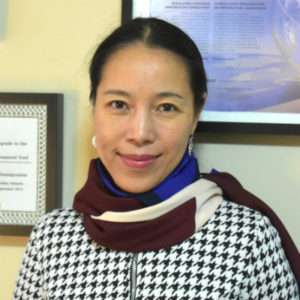

Zhang Hui
Regulated Canadian Immigration Consultant; Translator (English to Chinese, and Chinese to English); Interpreter (English to Mandarin, and Mandarin to English); Practicing lawyer (China)
- PinMo Canada Immigration
- Categories - Uncategorized, 未分类
Advantages of Being a Post-Secondary International Student in Canada
Canada has become one of the top ten study destinations for foreign students due to its academic reputation, political stability, and welcoming environment.
According to Statistics Canada, more than two million international students have enrolled in Canadian colleges and universities, and the number is still on the rise.
Many post-secondary international students have chosen to extend their stay in Canada after graduation, and some have even pursued the permanent residency route in Canada. From an immigration perspective, their position is advantageous regardless of whether they plan to stay or leave after their studies. This article will explore a partial list of the advantages of studying in Canada as an international student.
Working On-Campus
According to s.186 (f) of the Immigration and Refugee Protection Regulations (IRPR), full-time post-secondary international students studying in eligible Canadian colleges and universities with a valid study permit may work on campus without a work permit.
“On-campus” means that the working location is the campus at which the student is studying; if the school has several campuses, the student will often only be allowed to work on this campus. If the student is working as a teaching or research assistant and his or her work is confined to a research grant, then the student may work at an off-campus library, hospital, or research facility associated with the school.
The IRPR do not impose a limit on on-campus working hours. Full-time students, however, must have a minimum of 15 hours of scheduled instruction per week and maintain their academic performance. As such, it is recommended that students not work full-time or too often outside of scheduled breaks.
Working Off-Campus
Other than working on-campus, pursuant to s.186 (v) of IRPR the students may work off-campus if (1) they are enrolled in a designated learning institution (DLI); (2) their program is six months or more; and (3) the program leads to a diploma, degree, or certificate. They are allowed to work up to 20 hours per week during regular academic sessions, and full-time during regularly scheduled breaks.
Working on a valid study permit without having to get a work permit makes finding a job much easier. Specifically, it also affords the student:
– invaluable Canadian work experience;
– less financial stress due to disposable income; and
– a path to staying in Canada permanently after graduation.
Open Work Permit for Spouse or Common-Law Partner
The spouse or common-law partner of a full-time post-secondary international student studying on a valid student permit at an eligible college or university are eligible to apply for an open work permit. This type of work permit is not job-specific and is exempted from the Labour Market Impact Assessment, which allows the holders to work for any employer in Canada except ineligible employers. The expiry date of the spouse or common-law partner work permit is the same as the student’s study permit.
Like the student-specific benefit of working on- and off-campus without the requirement of a work permit, the open work permit policy benefits the student’s spouse or common-law partner.
Post-Graduation Work Permit
Graduates from certain DLIs whose program is eight months or more are eligible for a post-graduation work permit (PGWP) after their graduation; the PGWP is a type of open work permit that lasts between eight months and three years. The validity period typically matches the length of the academic program completed by the student if it is less than two years. Otherwise, the validity period is three years.
Students may combine two PGWP-eligible programs, each lasting a minimum of eight months, to obtain a PGWP based on the length combination of the programs. However, a PGWP is a one-time opportunity: it can only be obtained once, no matter how many eligible academic programs a student decides to take. It is thus crucial to plan and make efficient use of this policy.
Additional Comprehensive Ranking System (CRS) Points
As of June 2018, international graduates of Canadian colleges and universities get either 15 or 30 additional CRS points. For those whose credential is one or two years, 15 points are awarded, and for those whose credential is three years or more, 30 points are awarded. These points make international graduates more competitive than Express Entry pool candidates without additional points.
Various Permanent Residency Pathways
As international students may work during their study as well as after graduation on a PGWP, their Canadian work experience will likely help when they seek Canadian permanent residency.
Canadian Experience Class (CEC) is a possible option. This federal immigration program is tailored for foreign workers with at least one year of full-time Canadian work experience. Though work experience obtained during full-time study does not count toward CEC, work experience gained on a PGWP does.
Even though the other two federal Express Entry programs, namely the Federal Skilled Worker (FSW) program and Federal Skilled Trades Program (FSTP), do not specifically target international students, they may still be feasible. The FSW does not exclude work experience gained during full-time study, and the FSTP could suit international students studying eligible trades. Apart from these, self-employed international graduates with two years of work experience in each of major groups 51 and 52 of the National Occupational Classification (NOC) may consider the Federal Self-Employed Person program.
In addition to federal programs, some of the eleven provinces and territories of Canada have included an international graduate stream under their Provincial Nominee Program (PNP). This stream is designed to international graduates who may contribute to the social development and economic growth of a given province or territory. Most of them also have an Express Entry stream and some even have an international graduates Express Entry stream, both of which greatly assist international graduates from an immigration standpoint.
As mentioned before, this article is not an exhaustive analysis of the advantages associated with pursuing post-graduation education in Canada. Rather, it is for information purposes only and should not be considered legal advice. For more information on this topic, please visit IRCC’s website: Studying and working in Canada as an international student.
4. 加拿大永久居民项目简介 (英文)
5. 加拿大临时居民项目简介 (英文)

An Overview of Removal Orders

解读枫叶卡
加拿大北部特区省提名项目
- All
- 1. 加拿大移民简介 (英文)
- 2. 如何防范移民欺诈
- 3. 加拿大移民简介 (中文)
- 4. 加拿大永久居民项目简介
- 5. 临时居民项目简介
- 未分类

办公地址;
V3J 1C6 加拿大俾诗省本拿比市国王大道5050号二楼
办公时间:
周一 – 周五 9:00–17:00
周六/周日及国家节假日休息
加入我们
- 新浪博客
- YouTube
